Interest Free Financing Up To 36 Months
WE DO NOT ONLY PUMP YOUR TANK - WE CLEAN IT!
Multiple Financing Options Are Available Up To 36 Months
Interest Free Financing Up To 36 Months
WE DO NOT ONLY PUMP YOUR TANK - WE CLEAN IT!
Multiple Financing Options Are Available Up To 36 Months
When you think of a septic system, the first things that probably come to mind are the septic tank and maybe the occasional need for pumping or cleaning. However, one crucial component of your septic system often goes unnoticed—the drain field. Also known as a leach field, the drain field plays a vital role in wastewater treatment for homes that aren’t connected to a municipal sewer line. Without a properly functioning drain field, your septic system cannot safely or efficiently process the water that flows from your home.
In this blog post, our professionals from Septic Blue will explain what drain fields are, how they work, and why their care is just as important as any other part of your septic system.
A drain field is a network of perforated pipes buried in shallow trenches filled with gravel or sand. These trenches are typically located in your yard near the septic tank. Once wastewater exits the septic tank, it flows into the drain field, where it is gradually released into the soil. The soil then acts as a natural filter, removing harmful bacteria, viruses, and nutrients from the water before it eventually reenters the groundwater system. This underground treatment process is essential for protecting the environment and public health.
The septic tank and the drain field work together to treat wastewater. The tank’s job is to hold wastewater long enough for solids to settle at the bottom and oils to float to the top, forming a sludge and scum layer. Only the relatively clear liquid, called effluent, moves on to the drain field. If the tank isn’t regularly maintained with proper septic pumping and cleaning in Apex, NC, the solid waste can overflow into the drain field. When this happens, it can clog the pipes and contaminate the soil, ultimately leading to system failure. That’s why regular service from a trusted septic company is crucial for keeping everything running smoothly.
The success of a drain field heavily depends on the soil in which it is installed. Sandy, well-draining soils are ideal as they allow water to filter through effectively. If the soil is too compacted or made of clay, it can prevent proper absorption and filtration, causing water to pool on the surface. A septic service provider can evaluate your soil conditions and recommend the best setup for your property. Keeping heavy equipment and vehicles off the drain field area is also important to prevent soil compaction and preserve its ability to absorb water efficiently.
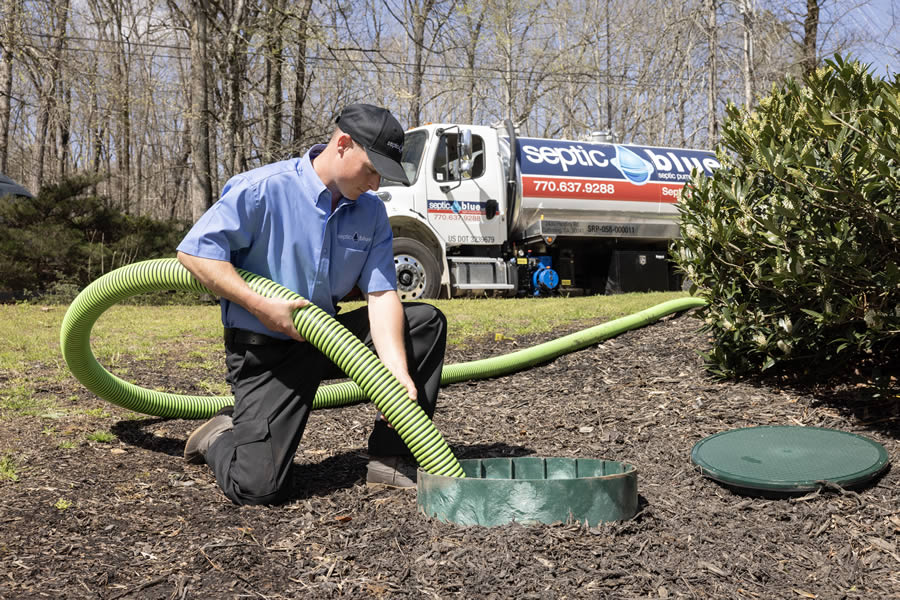
Septic tank pumping in Raleigh has never been so affordable and accessible thanks to the professionals at Septic Blue. We are…
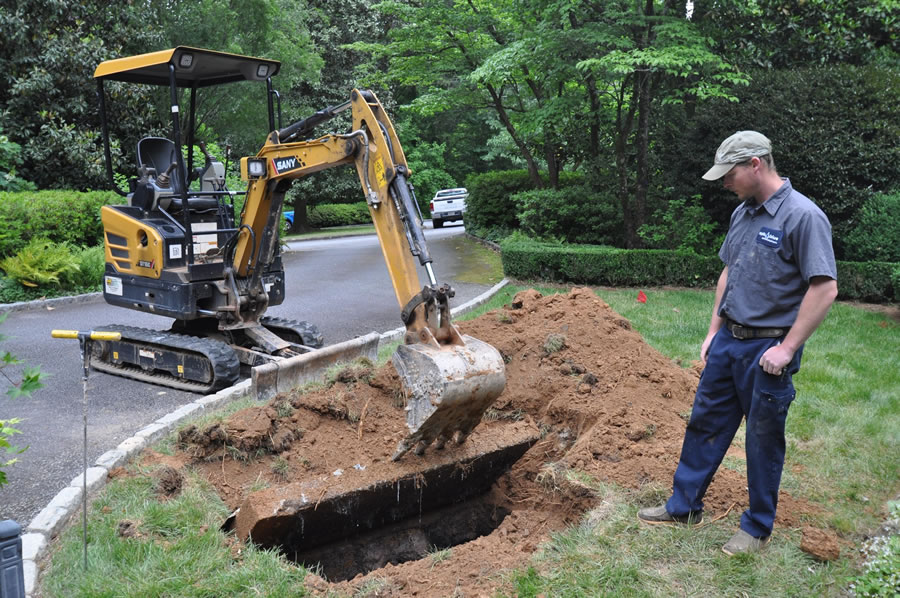
One quarter of Americans rely on septic tanks to process household waste. Most Septic Blue locations have septic tank experts who…
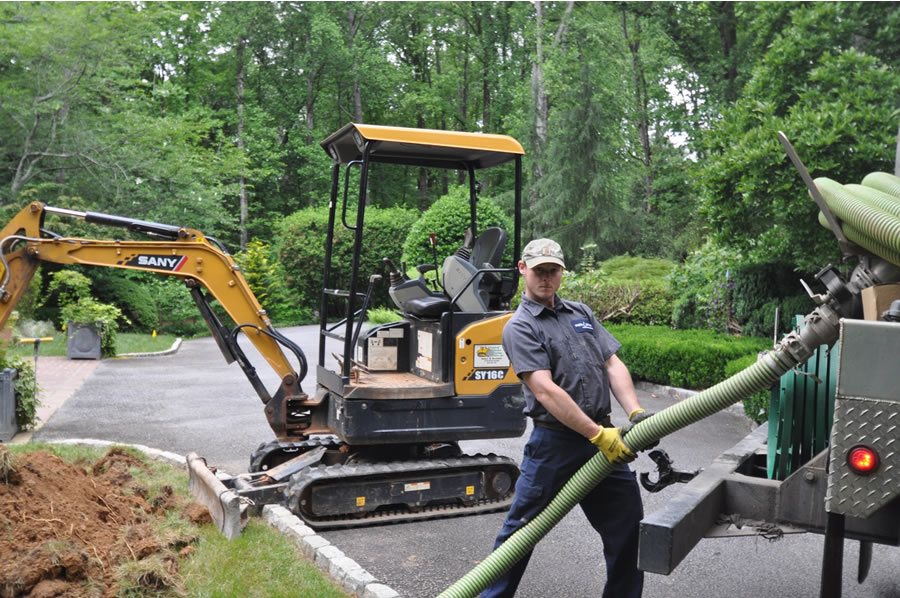
Call Septic Blue today for a second opinion. If you choose to go with Septic Blue, you'll receive $250 off your…
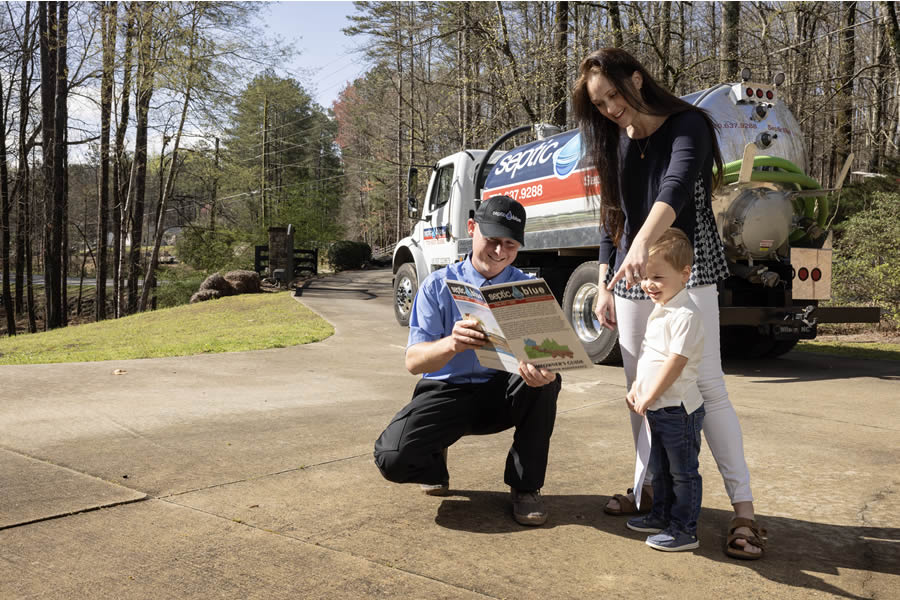
If you are a homeowner or resident in Raleigh that is among the 20 percent of households in the U.S. with…
Professional Saptic Plumbing solutions for every need. Contact Us Today!
When a drain field is not functioning properly, there are several signs that homeowners should watch for. Soggy or overly lush patches of grass above the field, slow drains in the home, or foul odors outside could all be indicators of a malfunction. These symptoms may point to clogs or system overloads often caused by infrequent pumping or lack of routine septic cleaning. If you notice any of these signs, it’s important to contact a septic company right away to assess and correct the problem before it escalates into a full system failure.
Regular septic service is essential for extending the lifespan of your drain field. This includes having your tank pumped every three to five years, depending on household size and water usage. Septic cleaning removes excess solids that could otherwise escape into the drain field. Additionally, conserving water in your home helps reduce the strain on the system, giving the drain field more time to absorb and treat wastewater properly. A good septic company can schedule routine inspections and offer tips to help you protect your drain field from avoidable damage.
Are you in need of septic cleaning? Luckily, we at Septic Blue have dedicated workers ready at your service. Contact our representatives for more questions.

Hiring a septic company in Raleigh, NC involves more than comparing prices or scheduling the earliest appointment. Septic pumping, cleaning,…
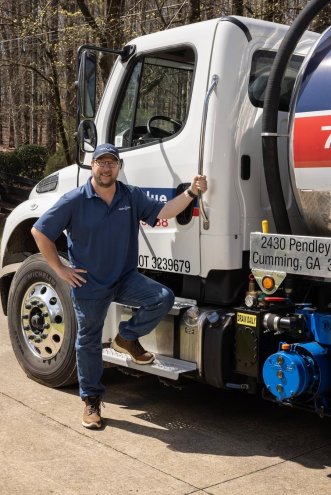
A septic system is designed to move wastewater efficiently from your home into a tank and then into the drain field.…
.webp)
Even if it often fades into the background of daily life, a septic system plays a critical role in keeping your…
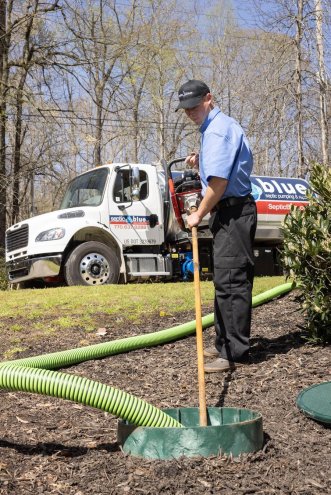
Septic systems play a critical role in protecting your home, health, and surrounding environment. Unfortunately, they're often misunderstood as systems that…